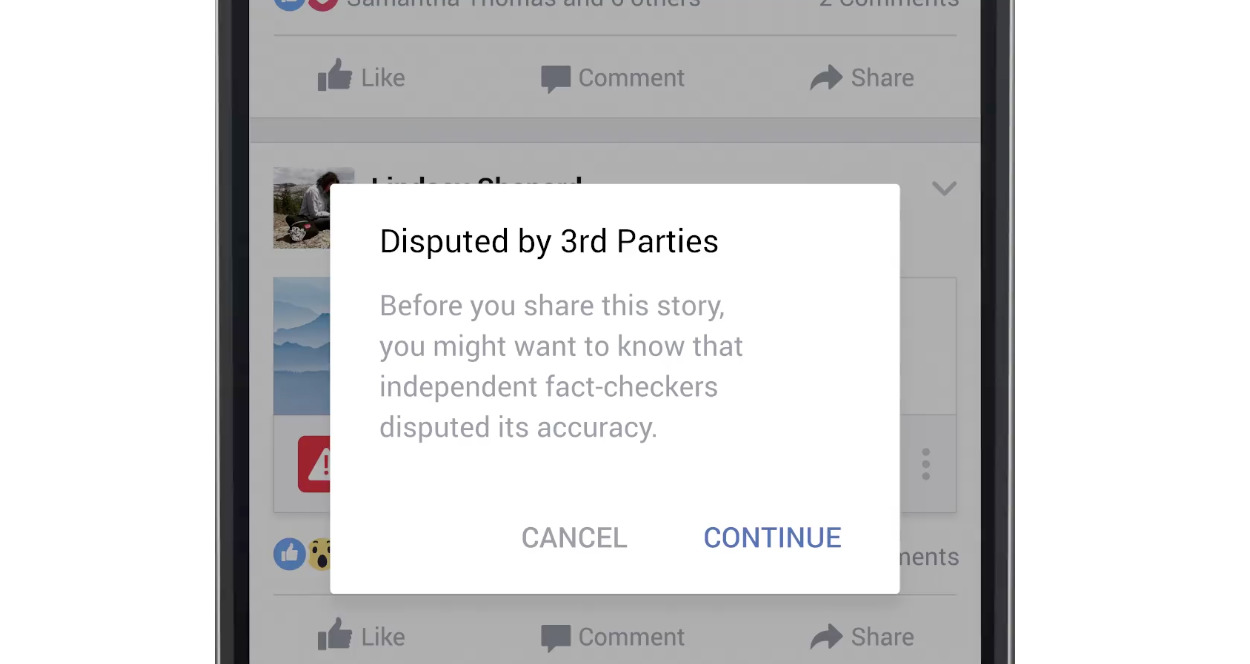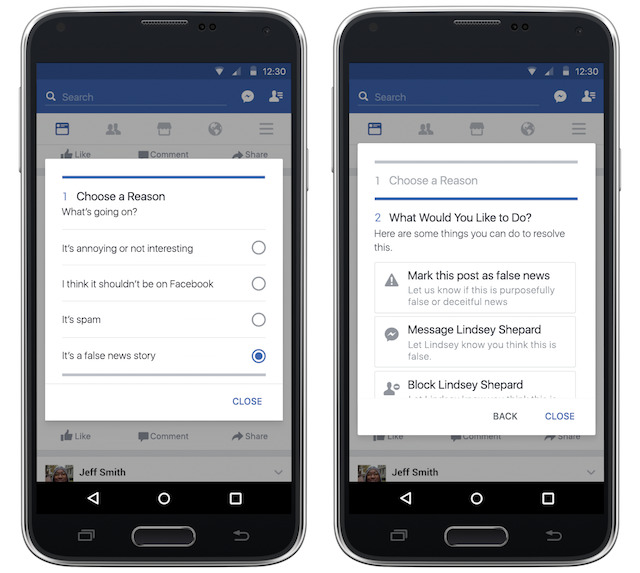This week, users on Facebook began receiving a public service announcement from the social networking site regarding what it has branded as "false news," offering tips on how to spot a fake story.
Notably, Facebook has chosen to refer to the trend as "false news," rather than "fake news," in an attempt to avoid the rhetoric — Â and accompanying political minefield — Â that now surrounds the latter term.
In announcing its initiative, Facebook has dubbed it "a new educational tool against information." Adam Mosseri, vice president of News Feed at Facebook, said the company's goal is for people to see accurate, truthful information when using the service.
"False news and hoaxes are harmful to our community and make the world less informed," Mosseri wrote. "All of us have a responsibility to curb the spread of false news."
"All of us have a responsibility to curb the spread of false news."
As part of its efforts, Facebook has focused on disrupting economic incentives for "false news," building new products to stop the spread, and helping people make informed decisions.
To aid the last two goals, the company added a new page to its help section called "Tips to Spot False News," which includes a top 10 list of things users can look out for. The page also gives detailed instructions on how to report a bogus story shared in a Facebook News Feed.
The new series of tips are being promoted on the Facebook News Feed on both desktop and mobile in 14 countries.
Once a news story is reported as false, it may be reviewed by independent third-party fact checkers. If those fact checkers determine the story is false, the story will be marked as "disputed."
Disputed stories are accompanied by a warning presented to users before they can share it, intended to discourage them from posting it to their feed.
Facebook's efforts are done in partnership with The News Literacy Project, Arizona State University's Walter Cronkite School of Journalism and Mass Communication, and the News Literacy Lessons for Digital Citizens.
Whether branded as "fake" or "false," Apple has also signaled it is working to curb the spread of factually inaccurate news stories. The company's internet service chief Eddy Cue indicated in February that Apple is working on backend solutions to stop misleading and dangerous content via its own News app for iOS.
Since last year's U.S. presidential election, "fake news" has morphed from a disinformation campaign to a major journalist problems. Entire websites are now devoted to churning out bogus stories that reinforce previously-held beliefs on hot-button political issues such as immigration, crime and the economy.
Such stories can go viral, either being spread through Facebook or Twitter or sent directly via Apple's own iMessages. Sometimes these stories gain enough traction to make it into legitimate news cycles, duping mainstream journalists and major news outlets.
"We're very concerned about all of the news items and the clickbait from that standpoint, and that driving a lot of the news coverage," Cue said. "We're trying to do some things in Apple News, we're learning from that and we need to share that together as an industry and improve it."
 Neil Hughes
Neil Hughes








-m.jpg)






 Malcolm Owen
Malcolm Owen
 Amber Neely
Amber Neely


 Christine McKee
Christine McKee

 Chip Loder
Chip Loder
 Marko Zivkovic
Marko Zivkovic









39 Comments
Independent fact checkers like Politifact, who rated John Kerry's statement that they got all the chemical weapons out of Syria a "mostly true"? Yeah, so reliable.
What happens when groups report true news as false and fact checker agree with that false decision? Any way to refute or reverse bad judgements?
And so it begins. The era of censorship. It will be accomplished in incremental steps where "incorrect" information as determined by the "correct" people first just label the information, at some point progressing to deleting it, then banning the user, and then "legal" action, which will range from civil to criminal sanctions.
Putting up with silly, offensive and even lies is an vital part of a true freedom of speech. Yes, Facebook is a private entity and the Bill of Rights does not apply to them so they can censor in any way they want, and yes there are always limits to the First Amendment protections, libel/slander laws, etc, but because of the reach and expanse of Facebook , and the likelihood that this will be emulated elsewhere, this is an ominous development.
Even with the best of intentions, this is unworkable. Take the recent controversies over the alleged spying by the Obama administration on the Trump campaign team, and the alleged involvement of the Russians with Trump staff. When someone posts a story, comment, etc., that "Obama spied on Trump" or "The Russians teamed up with Trump staffer" who is the oracle that gets to decide if either, neither or both or false/true? Now carry that out a thousand times every day with every story, report, etc.
Indeed, the beginning of a dark era if this isn't fought by civil libertarians left and right.